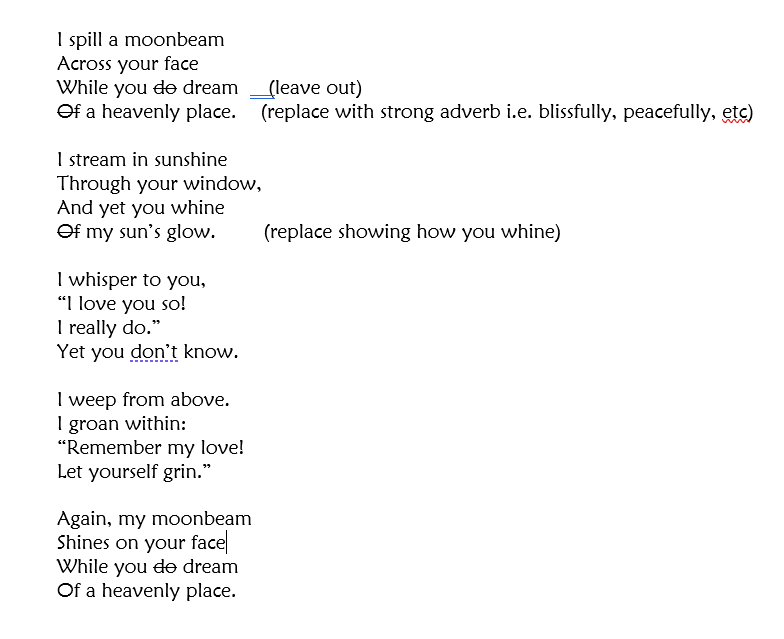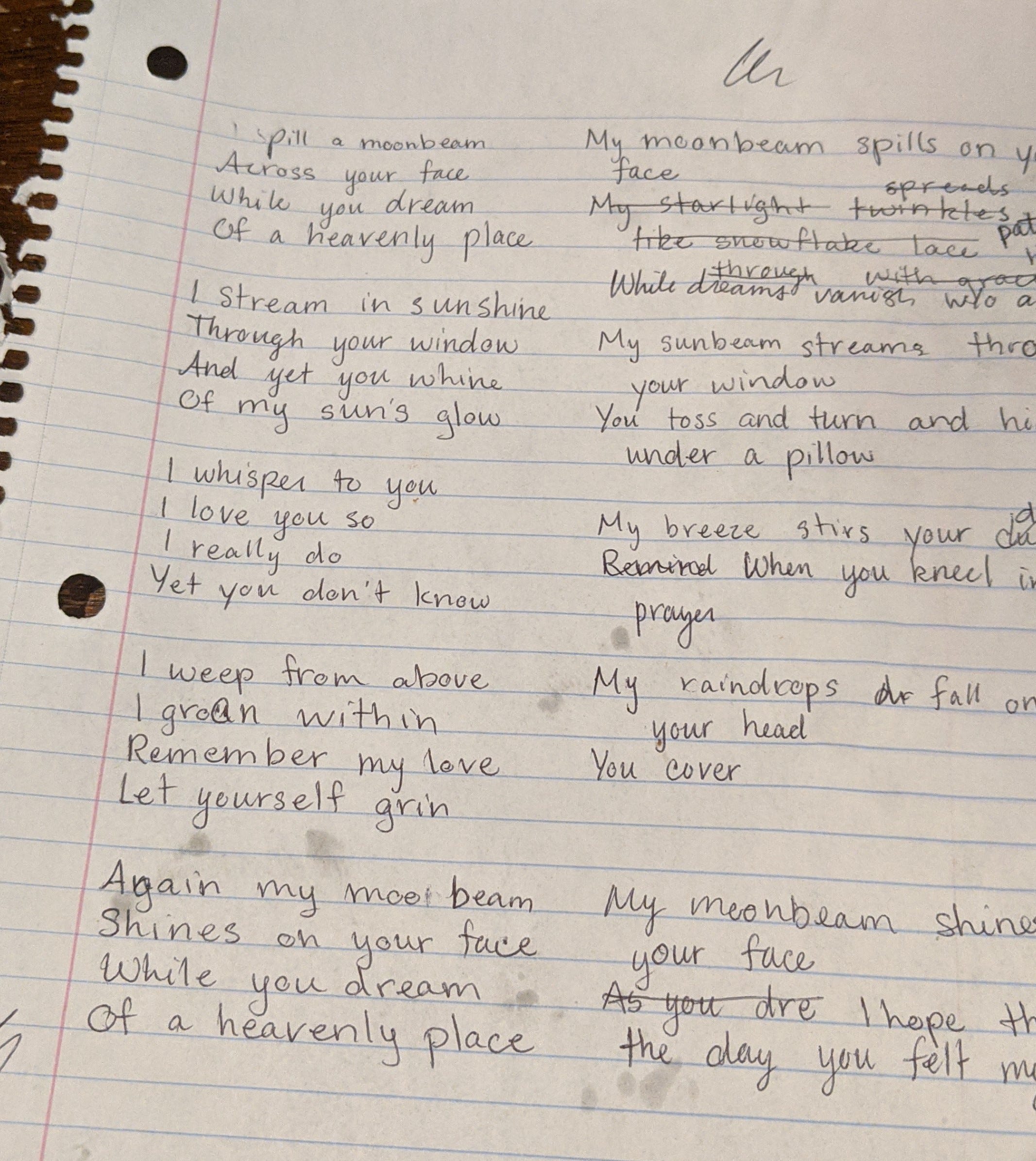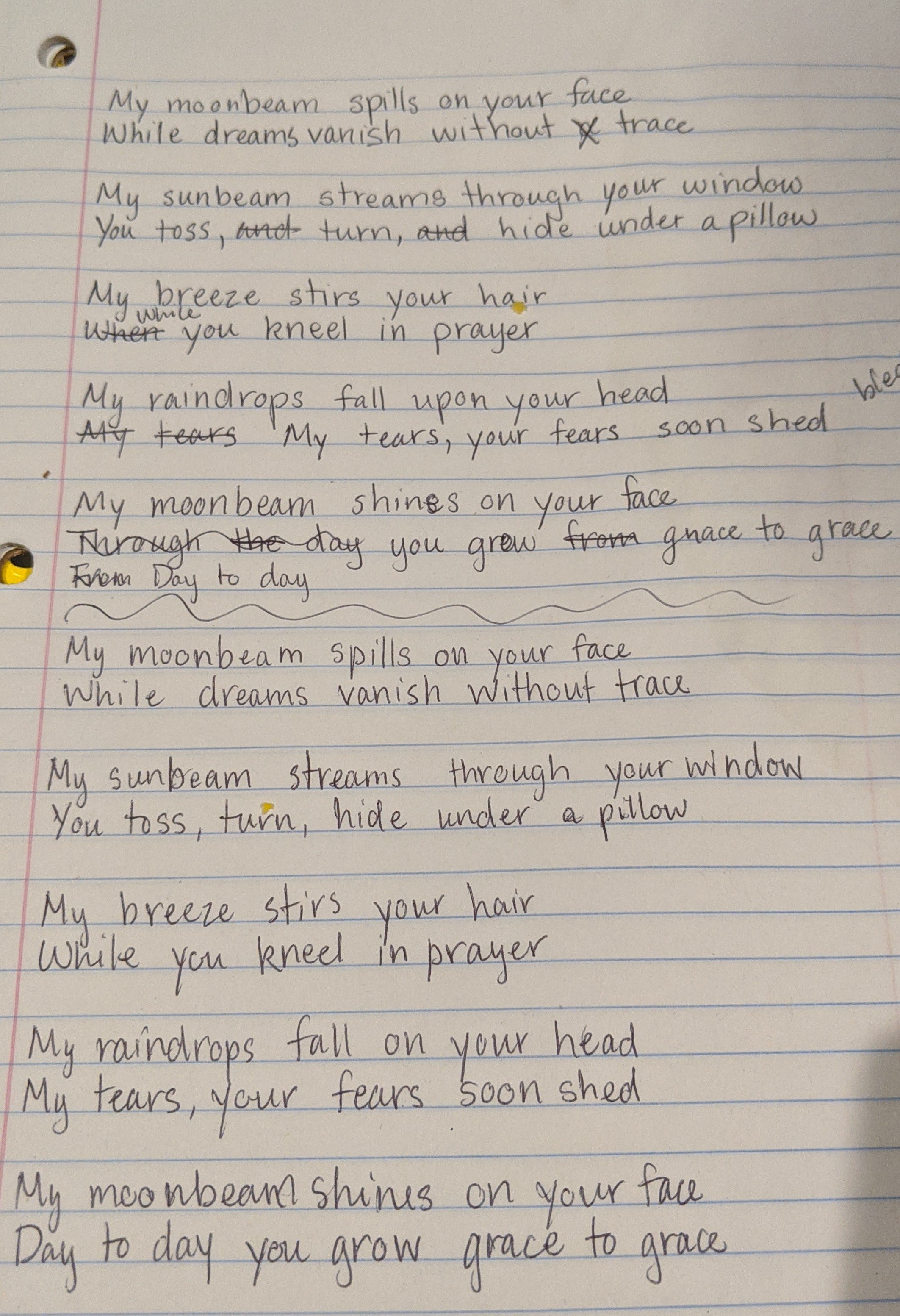As an infant and toddler, my youngest son had frequent ear infections. The infections were indicative of fluid retention in his middle ear. The fluid prevented his eardrums from vibrating properly, thus causing conductive hearing loss. The doctor placed ear tubes in his ears two years ago so his middle ear can drain since his Eustachian tubes weren’t draining properly.
My son’s expressive language is stuck in the babbling and one-word stage, which is the spoken language level of a one-year-old. He says a few words like tickle, no, ma, and da. Mostly, he babbles. Occasionally, his intonation sounds like a word or phrase. Overall, we have to repeat sounds many times before he imitates them. He responds better when he imitates his brothers or the sound is linked with an action.
His receptive language is much higher. He can point to objects or follow one-step commands. For example, when I say “Where’s the ball?” with a book, he will point to it. And he will throw trash away if I ask him to as a one-step command.
Because my son is stuck in the one-word/babbling stage, seeing is important to his language development.
What role does sight play in learning language?
From the moment children are born, they are imitating our facial expressions. Psychologists believe this imitation derives from our “mirror neurons.” One such imitation and expression is when an infant smiles around eight weeks old. They also imitate the manner of articulation from what they see and hear their parents say. The imitations carry through an infant’s cooing and babbling stages. Babies will take conversational turns of smiles, coos, gestures, babbling, and other actions. For example, if you stick your tongue out, a baby will copy that, but usually at a slower pace.
The School Mask Mandate
Ever since Utah Governor Gary Herbert ordered that all students should wear masks (or face shields), I have wondered how this would affect my toddler in special ed preschool and speech therapy. He would probably be covered under the disability category, but I didn’t know. I figured I could do a face shield for my son and the teacher would be wearing only a face shield. I discussed this with the preschool speech therapist when she visited for extended school year visits. She hoped that it would only be face shields.
On August 14, Gov. Herbert ordered that teachers must wear a mask with the face shield. All students must wear a mask unless they have a doctor sign a medical exemption form. Section (3)(e) of the mandate states a communication exemption:
an individual engaged in an activity where the ability to see the mouth is
essential for communication, including an individual who is deaf or hard of
hearing while communicating with others, an individual who is
communicating with an individual who is deaf or hard of hearing, or a
teachers-student dyad participating in speech therapy, in which case the
individual shall wear a face shield without a mask or use alternative
protection, including a plexiglass or similar barrier;
I tried to get some clarification from my son’s previous preschool teacher during our extended school year conversations about this. She stated students and teachers must wear masks from the last update. She didn’t seem to know anything about the exceptions for speech therapy. It seems there is a lack of communication about the exceptions.
Overall, I am very confused; some teachers are confused too. Because the rules change frequently, parents and teachers are both scrambling to figure this out. Preschool starts next week, so the kinks are yet to be determined.
Last week, I made five masks for each of my four sons to last a school week. I included my toddler because I don’t know exactly what is going on. Amid the confusion, my older children have adjusted to school with masks. Maybe my youngest will adjust well too.
On Monday, I read that deaf BYU students were considering clear face masks for themselves and their interpreters. Some read lips and also want to see the facial cues in ASL. I had an epiphany that they would work well for my son and his teacher.
I asked my son’s new preschool teacher if she would wear a clear mask. She said she’d try it out. I will be purchasing one for her most likely. This will all cost more money, but I don’t know what to do. My son needs to see the teacher’s mouth in order to imitate speech sounds better. I believe he could copy some sounds, but not as accurately.
What can I learn from blind babies’ language development?
While writing this post, I realized that sight is not absolutely critical to learning language. For example, blind babies learn how to talk. I wondered how they learn to communicate. I found some answers on Family Connect. A blind baby learns more through touch and sound. An adult can put a baby's hands on their lips or hands.
So masks will not stop my son from learning to talk but may make the process longer.
However, children are very resilient. Their plastic neurons forge new connections to adapt to the different learning circumstances.
This school year may be different, but children will still learn.
A Year Later
I witnessed how the mask exemption at my third son’s grade school worked when I substituted his special education class. The speech therapist, special education staff, and students wore face shields during therapy sessions. Otherwise, they wore masks. The face shield exception only applied when my third son attended therapy. My son could take off the face mask during recess, P.E., and lunch. I noticed he pulled it down to suck his thumb occasionally. For more details on masks and my substitute experience go here.
My third son also had frequent ear infections. After ear tube placement, his language returned to normal except for his “s/sh”. He first backed his tongue placement as an “h” and glottal stop. Now his “s” usually sounds like “s” or “sh”. Over the last year, my third son’s reading level improved one grade level (he is still one level behind). His “s” improved a significant percentage, mostly in the initial and final syllable slots. His “s” blends are still lagging behind.
I am unsure how the staff enforced the mask mandate in my youngest son’s preschool. I sent a mask in his backpack, usually a mask with a clear center. I offered the teacher adult masks with a clear plastic middle, which she accepted. I don’t know if she ever wore it. Those masks were harder to breathe and talk through when I wore one once substituting. I believe the speech therapist used a face shield during therapy. I don’t know what my son wore. I suspect he rarely wore the mask correctly or at all considering my fourth son usually wore it under his chin, over his eyes, or not at all during church service.
Over the last year, he increased his word count with banana ‘nana’, shoe, water, and possibly a few others. The speech therapist implemented a communication board, which he uses at home for more, want, and help. He signed more before the pandemic, then stopped. He increased his sign usage this year to more, help, stop, go, all done, and water. His “t” no longer sounds like “d”.
2021 School Year Mask Recommendations
This school year, Utah rescinded the school mask mandate because the legislature restricted the emergency powers of the governor and health departments. Grand County reimplemented the mandate because their county government approved it for 30 days. The Salt Lake County Council overturned Salt Lake County’s health department mask mandate for children under 12. Mayor Erin Mendenhall is looking to overturn that decision. President Biden may challenge Utah’s and other states’ lack of a school mask mandate. All Utah mandates still have the same exceptions as before. Other schools across the nation vary with their mask mandates despite the CDC’s school mask recommendations.
The American Academy of Pediatrics states:
“While this is a natural concern, there is no evidence that use of face masks prevents or delays speech and language development.”
Their article addresses parents’ concerns, contains tips to work around the mask, and work with speech therapists.
On the other hand, the UK, Sweden, and Holland largely do not require masks for children 12 and under. UNICEF recommends children under 5 not wear masks, and children 5–11 only wear them under certain circumstances. The website states for 5–11:
“You should also consider the potential impact that wearing a mask could have on your individual child’s learning and psychosocial development. Decide this in consultation with your child’s teachers and/or medical providers.”
Obviously, mask recommendations vary for children and those with speech delays.
With my background in linguistics and my parental intuition, I believe children learn language better without masks. But I know they can learn in masked settings too. For now, I send my children to school without masks because I “consider the potential impact that wearing a mask could have on [my]individual child’s learning and psychosocial development.” If a mask mandate comes, I will mask my children.
This I know, children are resilient.













